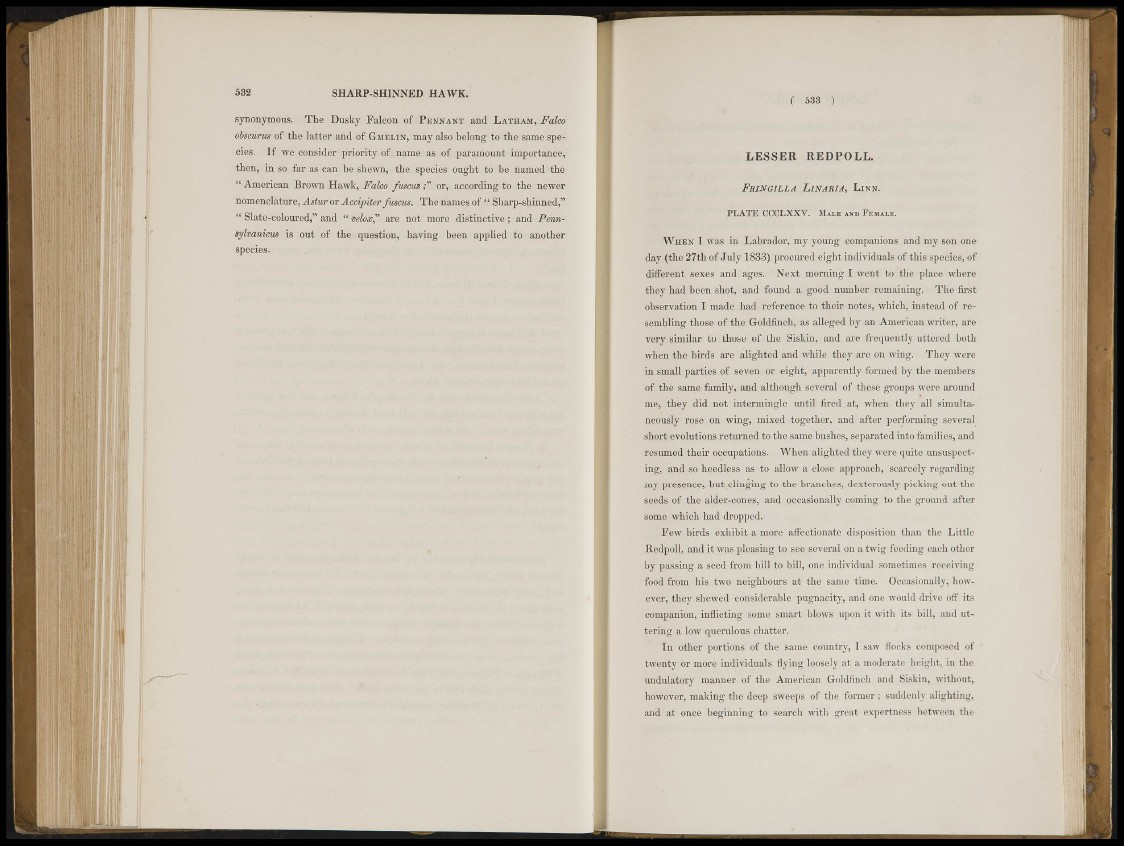
532 S H A R P - S H I N N E D HAWK.
synonymous. The Dusky Falcon of PENNANT and LATHAM, Falco
obscurus of the latter and of GMELIN, may also belong to the same sper
cies. If we consider priority of- name as of paramount importance,
then, in so far as can be shewn, the species ought to be named the
" American Brown Hawk, Falco fuscus or, according to the newer
nomenclature, Astur OY Accipiter fuscus. The names of " Sharp-shinned,"
" Slate-colouredj" and " vèlox? are not more distinctive ; and Pmnsyhamcw
is out of the question, having been applied to another
species.
L E S S E R REDPOLL.
FRINGILLA LINARIA, LINN.
PLATE CCCLXXY. MALE AND FEMALE.
WHEN I Was in Labrador, my young companions and my son one
day (the 27th of July 1833) procured eight individuals of this species, of
different sexes and ages. Next morning I went to the place where
they had been shot, and found a good number remaining. The first
observation I made had reference to their notes, which, instead of resembling
those of the Goldfinch, as alleged by an American writer, are
very similar to those of the Siskin, and are frequently uttered both
when the birds are alighted and while they are on wing. They were
in small parties of seven or eight, apparently formed by the members
of the same family, and although several of these groups were around
me, they did not intermingle until fired at, when they all simultaneously
rose on wing, mixed together, and after performing several
short evolutions returned to the same bushes, separated into families, and
resumed their occupations. When alighted they were quite unsuspecting,
and so heedless as to allow a close approach, scarcely regarding
my presence, but clinging to the branches, dexterously picking out the
seeds of the alder-cones, and occasionally coming to the ground after
some which had dropped.
Few birds exhibit a more affectionate disposition than the Little
Redpoll, and it was pleasing to see several on a twig feeding each other
by passing a seed from bill to bill, one individual sometimes receiving
food from his two neighbours at the same time. Occasionally, however,
they shewed considerable pugnacity, and one would drive off its
companion, inflicting some smart blows upon it with its bill, and uttering
a low querulous chatter.
In other portions of the same country, I saw flocks composed of
twenty or more individuals flying loosely at a moderate height, in the
undulatory manner of the American Goldfinch and Siskin, without,
however, making the deep sweeps of the former; suddenly alighting,
and at once beginning to search with great expertness between the